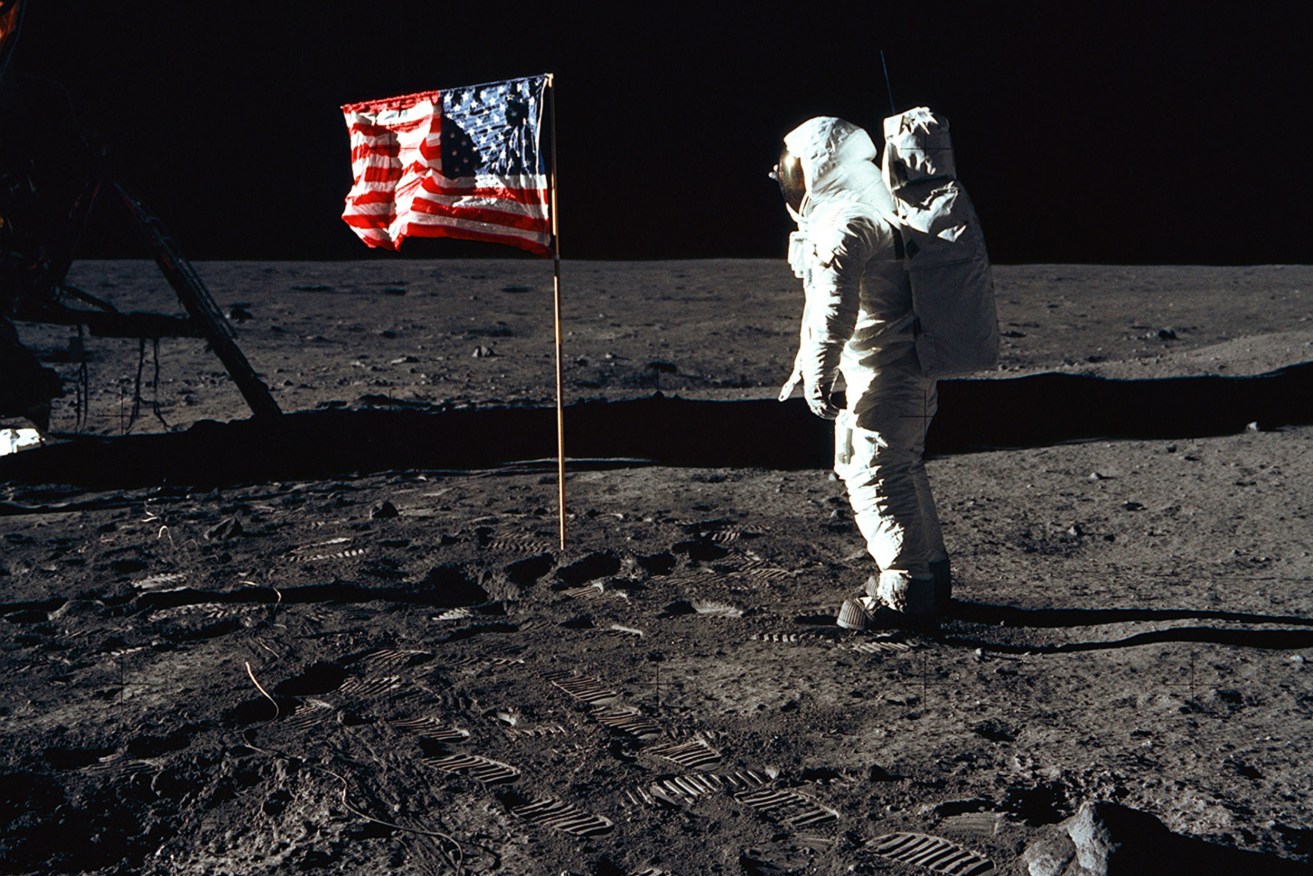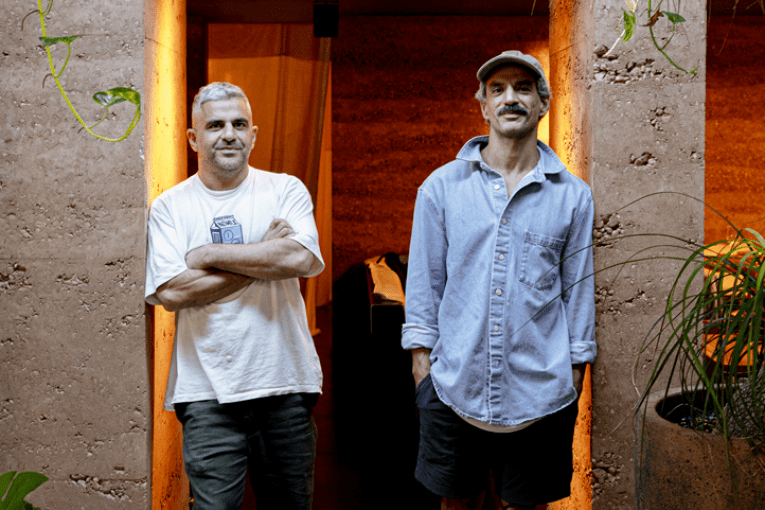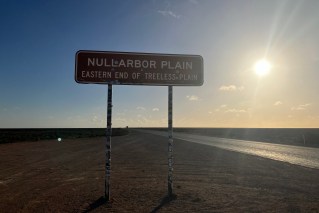Fly me to the moon – or Mars, or anywhere else that might help us all find some common ground
Where we once looked to the heavens for inspiration, it seems the human race is in danger of disappearing up its own world view, writes Shane Rodgers.


Astronaut Buzz Aldrin, lunar module pilot of the first moon landing, poses for a photograph beside the deployed United States flag on the lunar surface. (Image: NASA)
I have very vivid memories of crowding around a black and white television as a small child in 1969, watching grainy images of man’s first steps on the moon.
It wasn’t just me. Pretty much everyone in the world with access to a television was doing the same thing.
As the Reg Lindsay song says: “The world all stopped to watch, on a July afternoon – watch a man named Armstrong walk upon the moon.”
I have often pondered since then how many times we will see in our lifetimes these special moments when humans are reminded that we are ultimately one people on one planet with a shared past, present and future.
While the cost of the moon program over many years was controversial, there was something immensely gratifying in humankind achieving something so profound.
On that day it did not really matter what flag was planted there. “We” were on the freakin’ moon!! What else could we do?
Oddly, in the 50-odd years since, it is hard to find many (even any) events with the same power to unite us in a positive way.
Certainly, there have been other shared moments. We had Princess Diana – her wedding and her funeral – a rare individual who intrigued and captivated multiple generations.
We have sport – the Super Bowl in the United States, Soccer/Football in Europe and the various big event “footy” games and the Melbourne Cup in Australia that stop a nation. For a while we had big international concerts like Live Aid. We had the tragedy of 9/11.
But, really, nothing quite like footprints on the moon. It was a very rare moment of shared, positive human connectedness.
The dearth of moon-calibre events is even more curious when you consider we now have the Internet, the technology that promised to bring us all together in a single virtual place and take civilisation forward in previously unfathomable quantum leaps.
Yes, all the knowledge and information of the ages is at our fingertips. Yet, if anything, we seem more fractured than ever.
In fact, it is well documented that the Internet has in fact helped herd us into our tribes and create communities of shared views with limited exposure to objective or alternative positions.
In other words, the seismic growth in our information access has potentially narrowed our debating repertoires.
As Paul Resnick from the University of Michigan’s School of Information puts it, the filters that run at lightning speed over our digital search activity tend to “isolate people in information bubbles only partly of their choosing, and the inaccurate beliefs they form as a result may be difficult to correct”.
Being able to find “our people” all over the world has plenty of upside. But one of our big questions for the future will be how we can find enough commonality backed by universal truth to genuinely address the big challenges like climate change and garner enough support for really-big-picture pursuits.
Will we ever find enough common ground to do the important stuff that nations cannot do alone? Do we still subscribe to the basic human presumption that more things unite us than divide us?
Moreover, where will find objective truth in a world of rampant subjectivity where anything said or written with enough earnestness can be misdiagnosed as fact? After a while we can mistake the wolf for Little Red Riding Hood’s grandmother despite the long teeth and ferocious eyes.
When the Beatles visited Adelaide in 1964, 300,000 people (about a third of the then population of the city) came into the streets to greet them. In 1953, 72 per cent of American households that owned a television tuned in to an Episode of I Love Lucy for the birth of Little Ricky.
Those things happened at a time when it seemed we were all part of the same conversation; before we carved off to our tribes. What have we missed that we might have achieved if we came together more often?
The answer could be not much. But it is worth asking the question every so often.
I’m enough of an idealist to believe that there is still plenty that unites us, as long as we look for common ground and we are not too quick to gang up and troll-bash alternate views and ideas without really listening.
NASA still hopes to see humans on Mars in the 2030s. When that happens, hopefully the world can gather around all the big screen, high-definition lounge-room cinemas together and think: “’We’ are on freakin’ Mars!!. What else can we do?”
Shane Rodgers is a business executive, writer, strategist and marketer with a deep interest in what makes people tick and the secret languages of the workplace.












